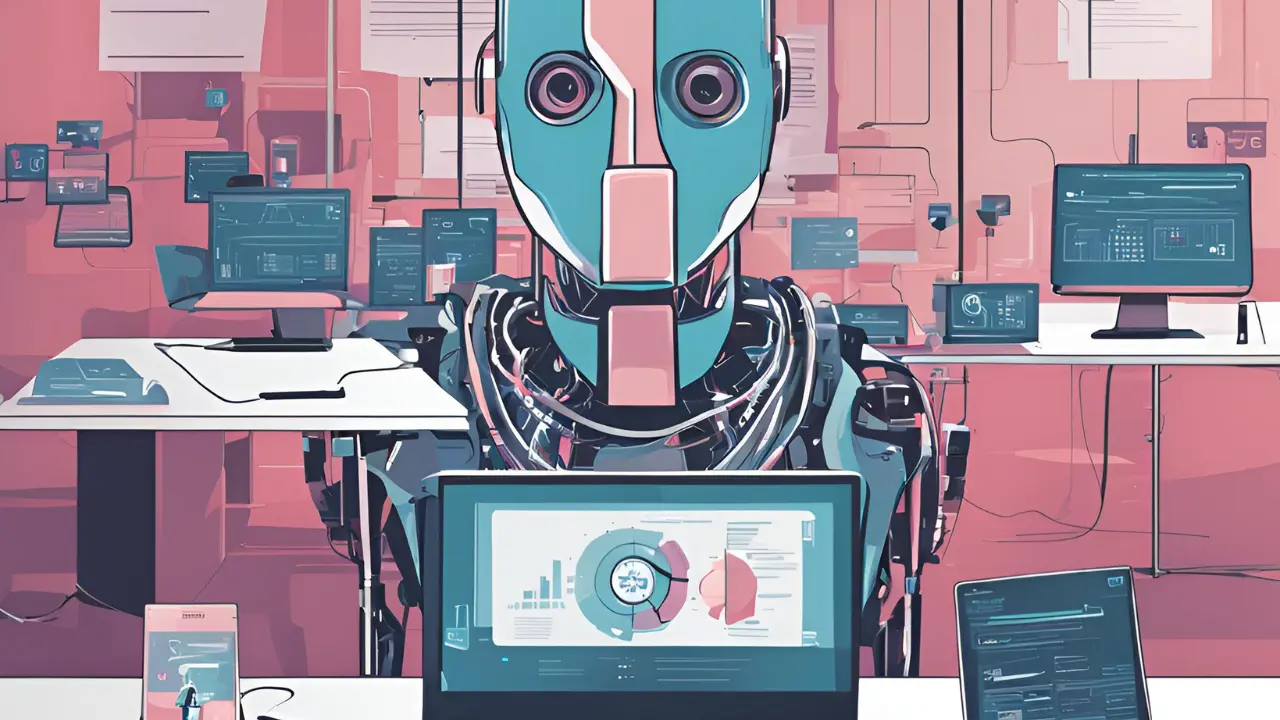Artificial Intelligence (AI) is a type of technology that can think, learn, and make decisions like humans. It’s becoming more common in our daily lives and changing how we work. In this blog, we will explore how AI is affecting jobs and what it means for the future.
The Evolution of AI in the Workforce
AI started as simple machines that could do easy tasks. Over the years, AI has become much smarter and more capable. Today, AI is used in many different industries, such as healthcare, finance, manufacturing, and customer service. It helps businesses run more efficiently and can even do tasks that were once only possible for humans.
Positive Impacts of AI on Employment
Job Creation in Tech Sectors
AI has created many new jobs, especially in the technology sector. People who know how to build, program, and maintain AI systems are in high demand. Jobs like AI specialists, data scientists, and machine learning engineers are now very important. Additionally, many new companies that focus on AI are starting up, providing more job opportunities.
Enhanced Productivity and Efficiency
AI helps people do their jobs better and faster. For example, in healthcare, AI can help doctors diagnose diseases more accurately by analyzing medical images. In factories, AI-powered robots can assemble products quickly and with fewer mistakes. This makes work more efficient and productive, allowing businesses to produce more and provide better services.
New Opportunities and Career Paths
AI has created new types of jobs that didn’t exist before. For instance, there are now jobs like AI trainers, who teach AI systems how to recognize patterns and make decisions. There are also roles in AI ethics, ensuring that AI is used fairly and responsibly. To keep up with these changes, many people are taking training programs and online courses to learn new skills. This helps them prepare for the new opportunities that AI brings.
Challenges and Concerns
Job Displacement and Automation
While AI creates new jobs, it can also replace some jobs, especially those that involve repetitive tasks. For example, self-checkout machines in grocery stores reduce the need for cashiers, and automated customer service chatbots can handle many inquiries that used to require human workers. Jobs in industries like manufacturing, retail, and transportation are particularly at risk of being automated.
Skills Gap and Workforce Readiness
The rapid growth of AI has created a skills gap. This means there is a high demand for workers with AI-related skills, but not enough people have these skills. To address this, it is important for people to learn more about AI and related technologies. Schools, colleges, and businesses should offer training programs to help workers gain the skills they need. Continuous learning and adaptability will be crucial in helping the workforce stay ready for the changes brought by AI.
Ethical and Social Considerations
Using AI raises important ethical and social questions. Sometimes, AI systems can be biased and make unfair decisions. For example, if an AI system is trained on biased data, it might favor certain groups over others. It is important to ensure that AI systems are fair, transparent, and inclusive. Companies must prioritize ethical AI practices to build trust and accountability. This includes making sure that AI decisions can be explained and that there is oversight to prevent misuse.
The Future of Work in an AI-Driven World
Looking ahead, AI will continue to change the job market. Policymakers and business leaders play a crucial role in creating a balanced economy where AI and human jobs can coexist. They need to implement policies and programs that promote lifelong learning and help workers adapt to the new landscape. Embracing AI as a tool that complements human work, rather than replacing it, will be key to a harmonious integration of technology and employment.
Conclusion
AI is changing how we work in many ways. It brings new opportunities but also presents challenges. By learning new skills, addressing ethical concerns, and embracing AI’s potential, we can create a future where AI and human jobs thrive together. It is important for individuals, businesses, and policymakers to work together to navigate these changes and make the most of the benefits that AI offers.
FAQs
- What types of jobs are most likely to be created by AI?
- Jobs like AI developers, data scientists, and AI trainers are in high demand. New roles in AI ethics and automation management are also emerging as companies look to use AI responsibly.
- How can workers prepare for an AI-driven job market?
- Workers can take courses and training programs to learn new skills related to AI. This helps them stay competitive in the job market. Upskilling and reskilling are important for adapting to new technologies.
- What industries are expected to benefit the most from AI?
- Industries like healthcare, finance, manufacturing, and customer service will benefit the most from AI because it helps improve efficiency, accuracy, and innovation in these fields.
- How does AI impact small businesses compared to large corporations?
- AI helps small businesses by automating tasks and providing data insights, making it easier for them to compete with larger companies. Large corporations can implement more comprehensive AI solutions for greater innovation and efficiency.
- What ethical considerations should be taken into account with AI in the workforce?
- Ensuring AI systems are fair, transparent, and unbiased is crucial. Addressing issues of data privacy, consent, and accountability helps build trust in AI technology. Companies should also be aware of the social impact of AI and strive to use it in ways that benefit everyone.
For more latest info please check click here
Also Read : Web3 Gaming in 2024: Unlocking New Realms of Excitement and Innovation

2 thoughts on “The Impact of Artificial Intelligence on Job Markets 2024”